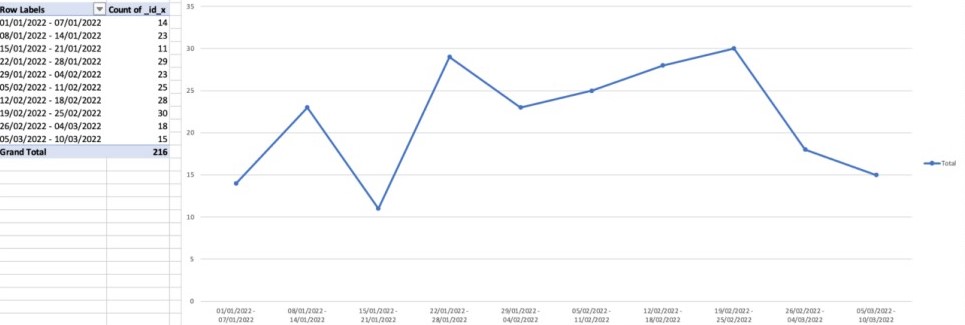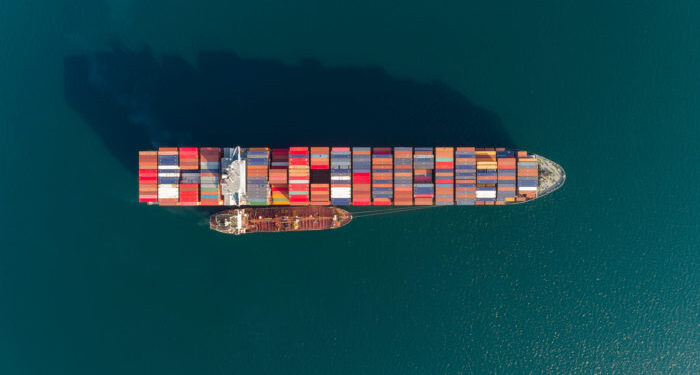Predictive Maritime Intelligence company Windward, releases updates and insights on the supply chain as it relates to Russia’s invasion of Ukraine. In recent bunkering analysis Windward focuses on “moral sanctions”.
Russian bunkering analysis reveals “moral sanctions”
According to Windward, new restrictions and sanctions imposed by the U.S. government require businesses looking to protect themselves from financial and reputational risk to take a deeper look into the ownership and management of vessels they consider for business engagements.
Windward’s proprietary behavioral data indicates that in the past two weeks, there has been a decrease in the number of bunkering (fueling of vessels) operations by Russian-owned vessels fueling non-Russian-owned vessels.
The number of such bunkering activities started to decrease even before the U.S. presidential directive was published. This strengthens our previous assessment that moral sanctions are being applied – much of the world is trying to avoid doing business with Russian entities
As additional restrictions come into play, we expect to see an even further decrease of bunkering operations executed by Russian-owned vessels.

In addition, zooming out of the bunkering operations to look at the bigger picture, the change is even more drastic, as “just in the past week, the overall foreign port operations of Russian-owned commercial vessels (cargo and tanker) were cut by 64%.”
Earlier, Windward had reported that the industry is seeing the increasingly important phenomenon of “conscious capitalism”, where companies choose the maximum distance from Russia, rather than clearing the minimum bar of compliance.
More specifically, banks and trading companies are increasingly engaging in “self-sanctioning” against Russian entities in the shipping and commodities sector to avoid issues with regulators and public displeasure.






























































